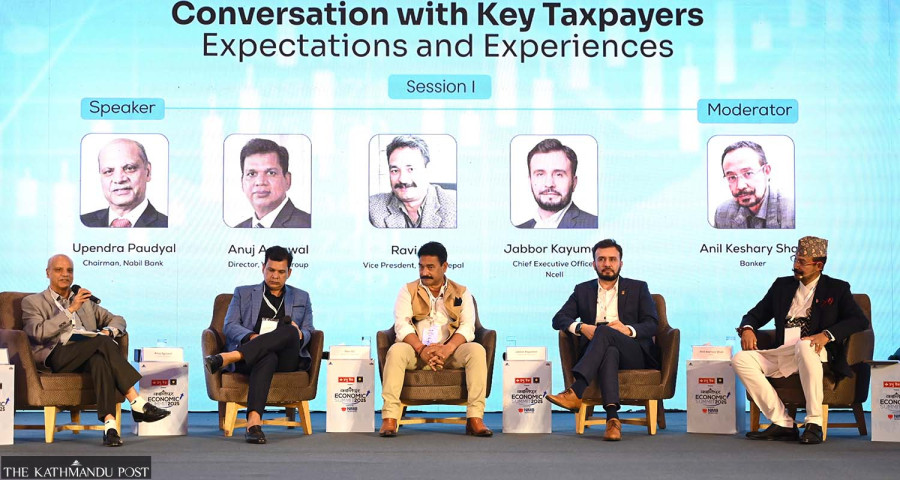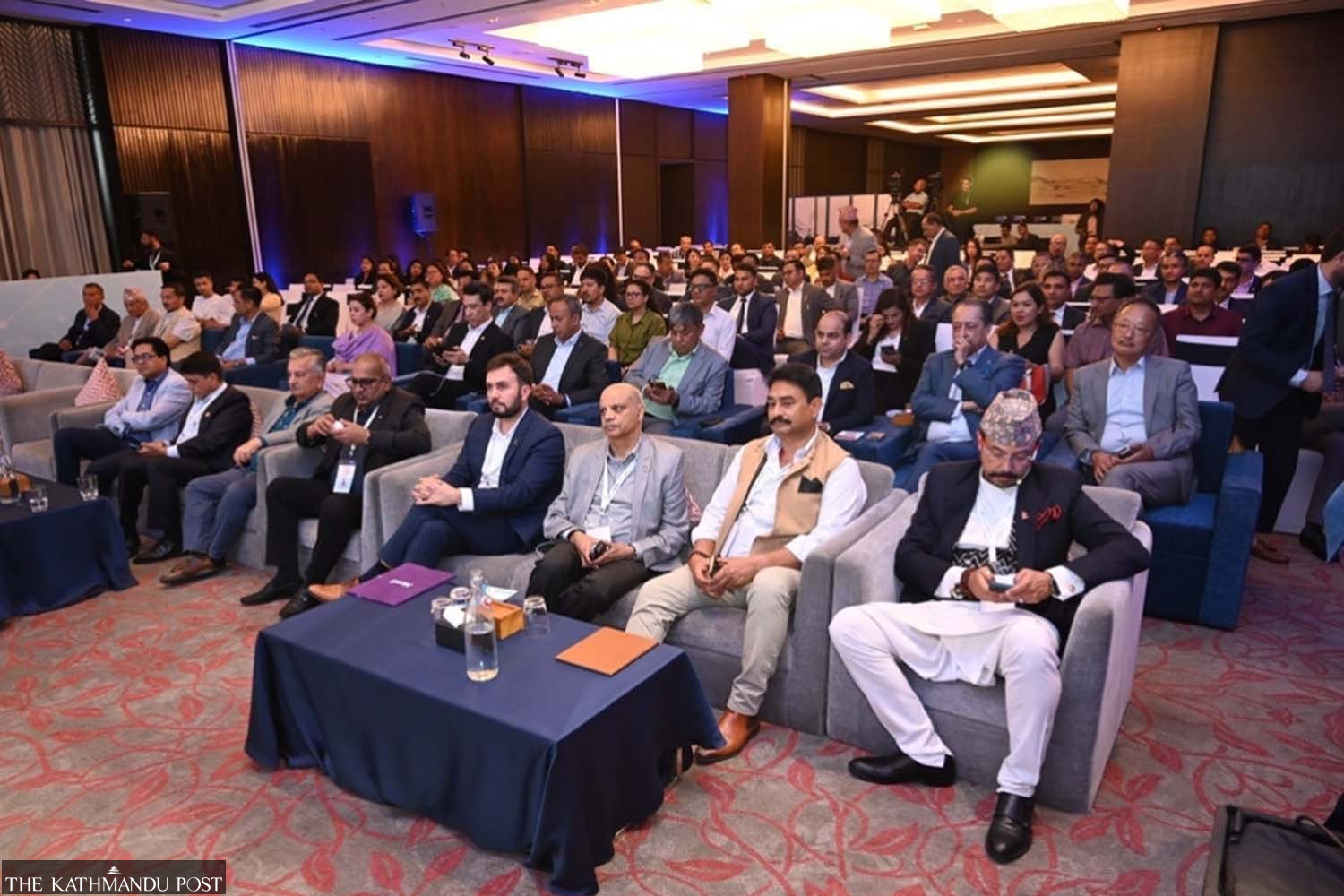National
Stakeholders emphasise need of boosting private sector confidence
Speakers argue high taxation has been constraining investment expansion.
Post Report
Nepal’s private sector is sounding the alarm over waning investor confidence, mounting government debt, and erratic policy implementation, as revealed in a series of statements made during the ongoing Kantipur Economic Summit 2025 in Kathmandu.
Under the theme “Building a resilient economy,” the summit has gathered policymakers, corporate leaders, and financial experts just weeks before the national budget announcement, with hopes of setting a clearer course for economic recovery. However, participants have instead painted a picture of stagnation, distrust, and overregulation.
The government is scheduled to unveil its annual budget for the upcoming fiscal on May 29.
In the opening session, Kailash Sirohiya, chairman of Kantipur Media Group, criticised the government’s failure to stimulate the economy, despite amending nearly two dozen laws through ordinance a few months ago.
“There has been no significant investment expansion, and the private sector’s confidence remains low,” said Sirohiya. “This directly impacts government revenue. Our current expenditure now surpasses income, and public debt has ballooned to over Rs2.6 trillion.”
He added that political and bureaucratic institutions continue to pay only lip service to a private sector-friendly environment.
Citing the prolonged delay in appointing a new governor for Nepal Rastra Bank and increasing political interference in economic institutions, Sirohiya warned that institutional integrity is at risk.
In the summit’s first session, “Conversation with key taxpayers: Expectations and experiences,” senior business leaders voiced strong concerns about taxation practices, alleging inconsistency, opacity, and punitive measures.
Nabil Bank Chairman Upendra Paudyal stated that the bank has paid Rs11 billion in taxes over the last five years, including Rs1.62 billion last year alone. Despite being a major contributor, he said the bank often faces hassles while accessing government services.
“We want to see our taxes used transparently and effectively,” Paudyal said. “But even after paying substantial taxes, the environment remains hostile. The relationship between tax authorities and taxpayers must be built on trust.”
Paudyal called for the withdrawal of unjust taxes that fall outside international norms, stating such a move would send a positive message to investors.

Ravi KC, vice president of Surya Nepal, said his group alone contributes Rs45 billion annually in taxes. However, he explained that after accounting for raw materials, interest, and operations, companies are left with a meagre 2 percent profit—only to be further taxed.
“Out of every Rs100 in sales, Rs70 goes to the government. After costs, we barely earn Rs2 in profit. This level of taxation stifles growth,” KC noted.
He added that flawed policies have discouraged both domestic and international investors, with many multinational firms deterred by regulatory complications and land acquisition issues.
Moreover, KC warned that higher taxes on alcohol and tobacco, rather than curbing consumption, have incentivised smuggling and illicit trade and that the government appears unaware of the issues.
“Fake and illegal products are rampant in border areas. Yet, no one seems to be addressing this,” he said.
Jabbor Kayumov, chief executive officer of Ncell, described the telecom sector’s current state as “alarming,” revealing that only two operators remain, down from several a decade ago. The sector’s contribution to GDP has shrunk from 4 percent to 1.2 percent, with no clear strategy to reverse the trend.
Kayumov highlighted that 60 percent of Ncell’s revenue goes to taxes, 20 percent to new equipment, and the remaining 20 percent is used to cover salaries and operational expenses.
He was of the view that there is no viable business case for 5G investment in Nepal right now. In countries like India, companies can reinvest post-tax profits in innovation but the environment here doesn’t allow that, he said.
He advocated for reforms in the tax regime and licensing structure to save the telecom industry from further decline and to enable innovation.
The summit will continue with sessions focused on budgetary priorities and a direct dialogue with Finance Minister Bishnu Paudel.




 9.12°C Kathmandu
9.12°C Kathmandu














